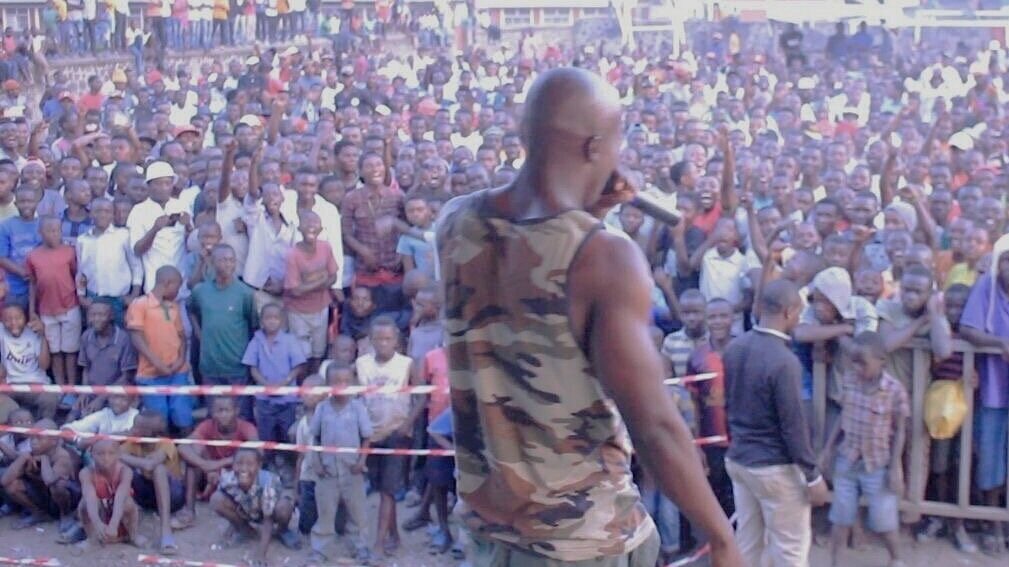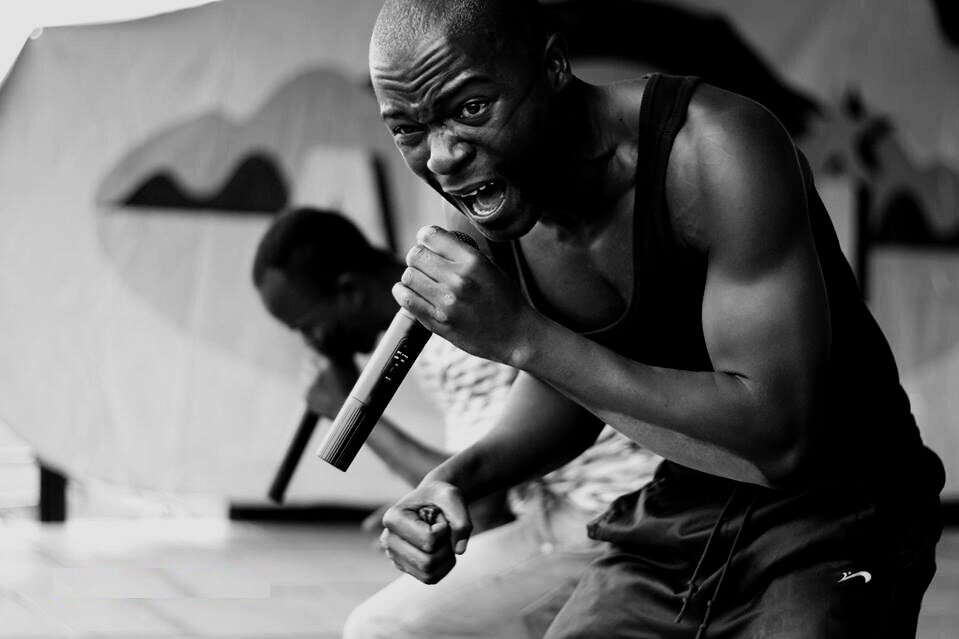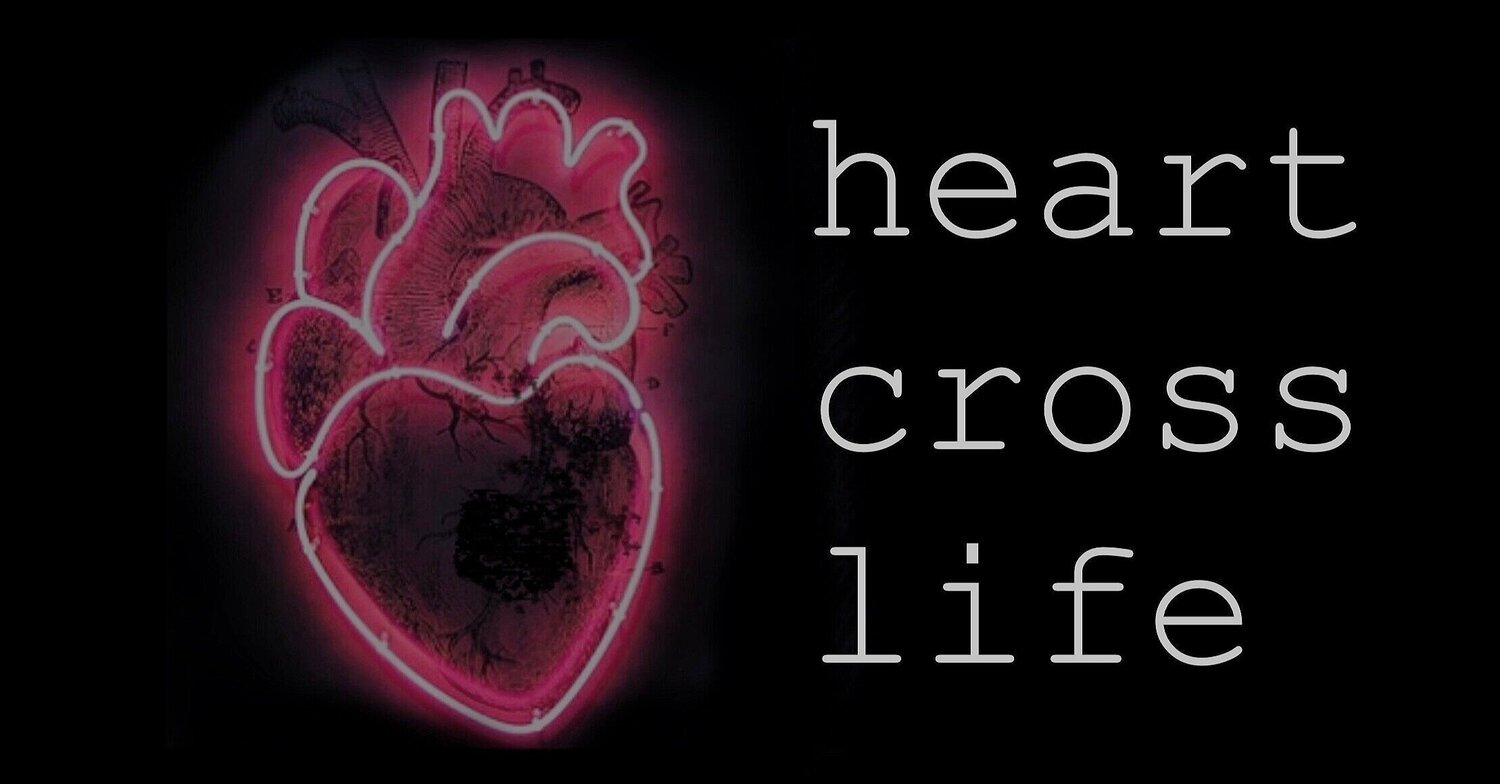
BLACKMAN BAUSI FOUNDATION
“We have no future without finding forgiveness and healing trauma.”
-Blackman Bausi
Blackman Bausi
Born from rape, in a part of the world known as the capital of sexual violence, Blackman is a peace advocate, humanitarian rapper and missionary. Based in eastern DR Congo with his wife, Jenn, they work to teach leadership, critical thinking and forgiveness. His story is difficult, but he is intentional to live the example of the principles they teach.
we are passionate about peace, justice and forgiveness
Our focus is investing in global communities to overcome trauma by teaching leadership, critical thinking and forgiveness. In doing so, we tackle the stigmas of war.
We are based in an active war zone in DR Congo, deemed the world capital of sexual violence. Rape has become a weapon of war in this epidemic where communities are crippled by trauma. Trauma from the atrocities of war are not talked about due mainly to the associated stigmas of rape and intense shame. Thousands of children are born out of rape every year and these children are considered a shame to their communities. Unforgiveness has become a burden the people carry with them because they cannot forgive their assailants. Shame and unforgiveness weigh down society and prevent people and their communities from healing and moving forward.
Additionally, society in this region was not taught to think critically and develop their own thoughts and feelings, which further enables these long standing stigmas to continue to adversely affect communities. The cycle of violence and shame are perpetuated by the acceptance of these stereotypes subconsciously held against victims of war.
We see many leaders with the potential ability to positively impact their communities, but the stigmas, shame and unforgiveness prevent them from achieving their full potential.
Our work is to bring awareness to trauma and teach the people how to overcome the stigmas and shame to find the forgiveness they need which in turn heals the trauma. Leadership and critical thinking are important and allows them to understand that forgiveness is for themselves, their communities, and their future and not their assailants. We use the bible and Jesus’s teachings on forgiveness to teach our local leaders critical thinking and forgiveness. Through discipleship, we are able to share these teachings with their communities, ultimately in conjunction with art therapy and mental health awareness.
Mental Health
In order to come to a place of forgiveness, we need to see our traumas healed. Stepping back to first strengthen our mental health requires an understanding of what it is and why it’s important. This gives us the emotional preparedness to be aware of our trauma. From there, we can fully embrace the hard work necessary to heal our hearts and minds so we can walk in rhythms of forgiveness, be clear minded to think critically and to be the leaders we are created to be for ourselves, our families and our communities.
art therapy
We believe in using creativity to express our trauma and play a part in our healing. Art therapy is a specialized area of mental health that uses art materials, writing, dance, music, etc and the creative process to explore emotions, reduce anxiety, increase self-esteem, and bring healing to deep seeded traumas.
This is simply teaching others what you know and reinforcing it by living an example. We train leaders who train leaders. Small groups in local communities meet weekly to read the Bible, discover the Word of God by asking 4 simple questions: What does this teach us about God, people, how can apply this teaching to my life, and who can I tell. We focus first on forgiveness because we strongly believe forgiveness is the key to total freedom in Christ. Forgiveness is not for the offender, but for the offended and it allows us a healthy relationship with ourselves and ultimately our community.

“The majority of our society does not read but rather prefers to pass their time listening to music. What kind of music is this population listening to? Is it not music that promotes the use of alcohol, sex, nudity and the exploitation of women? In a country where war causes constant rage? WHY?! After years of observing my own culture and these very situations, I truly believe we can start living the change we want to see in our country and set an example for the world.”
— Blackman Bausi




